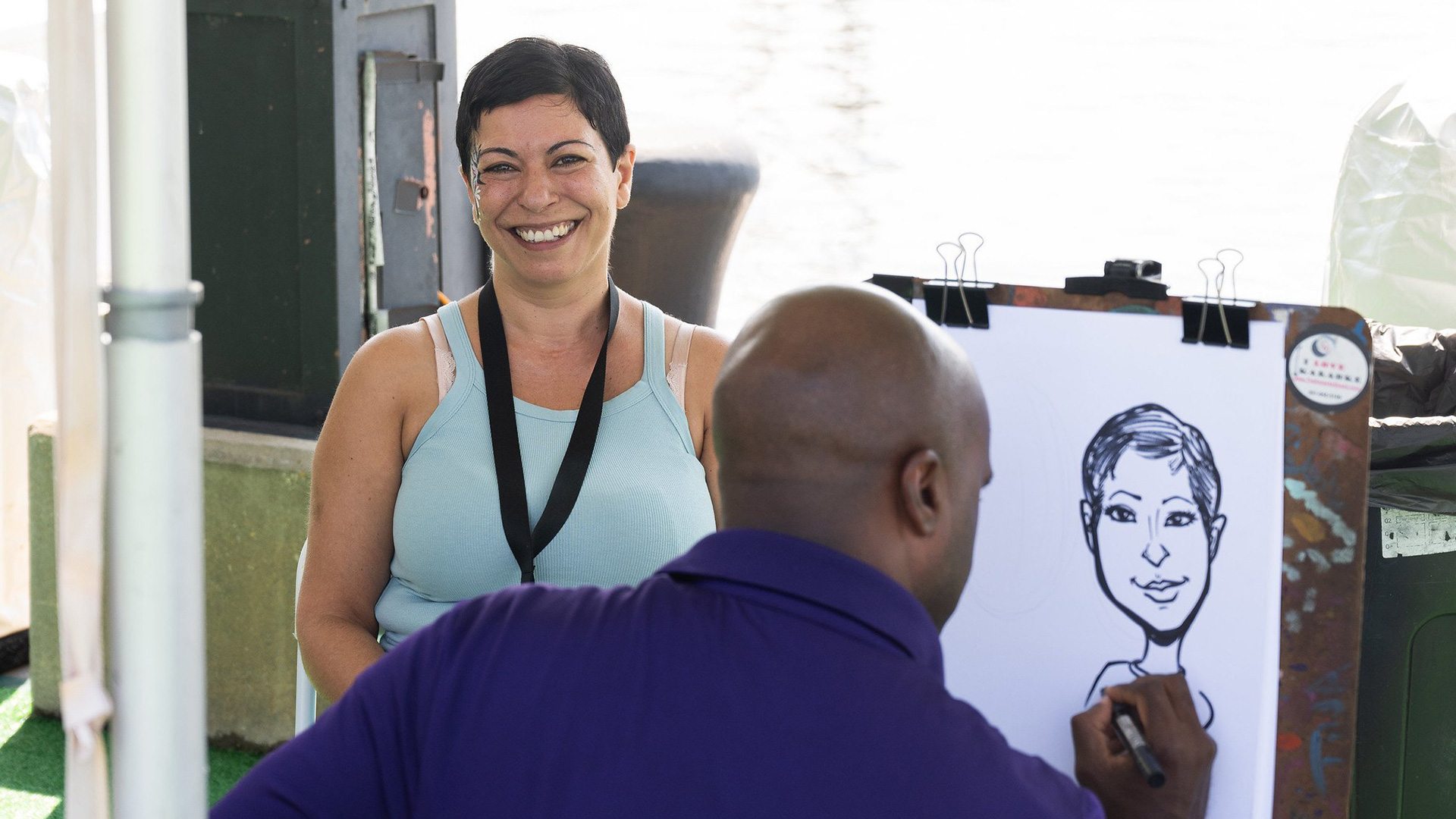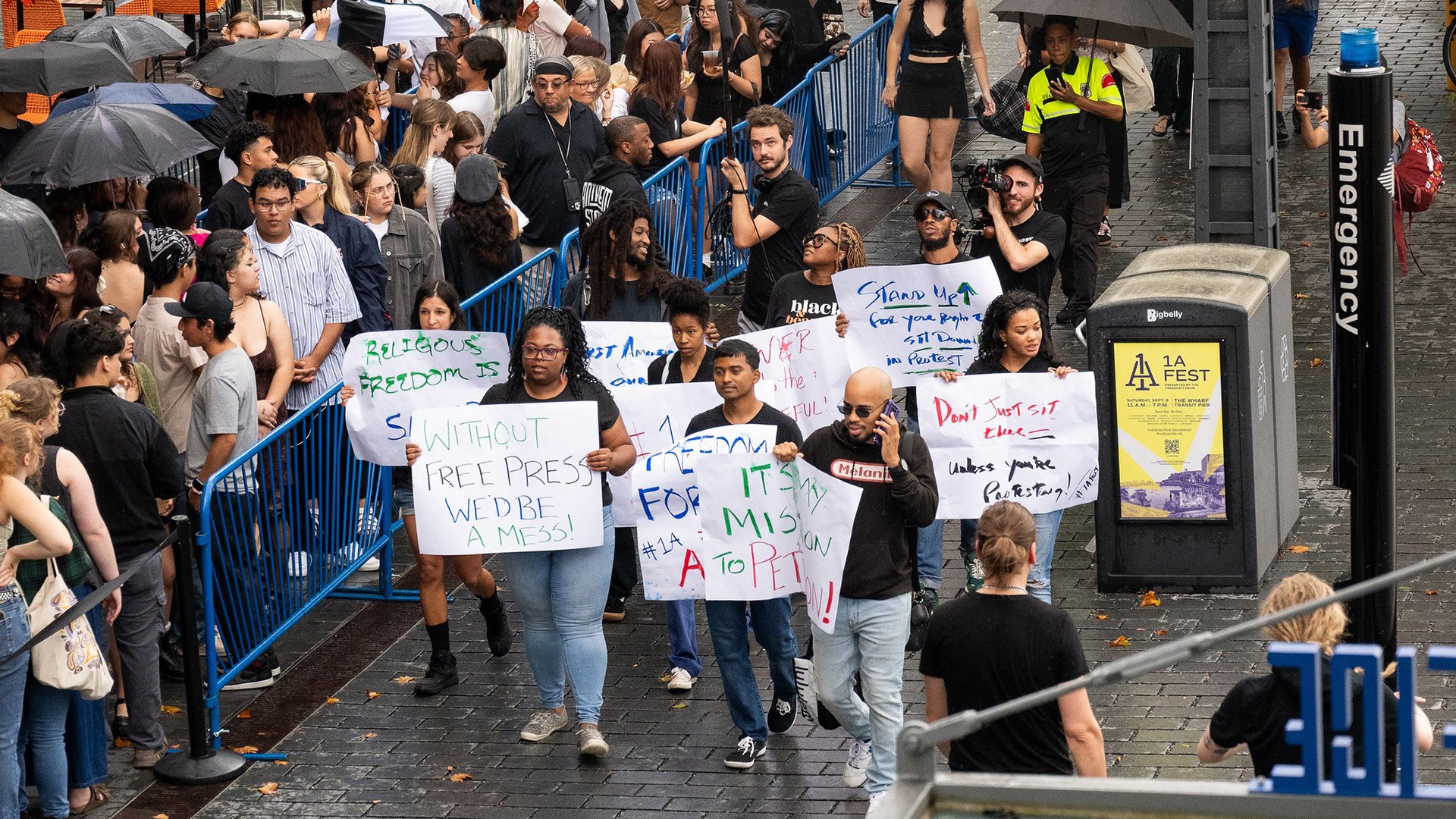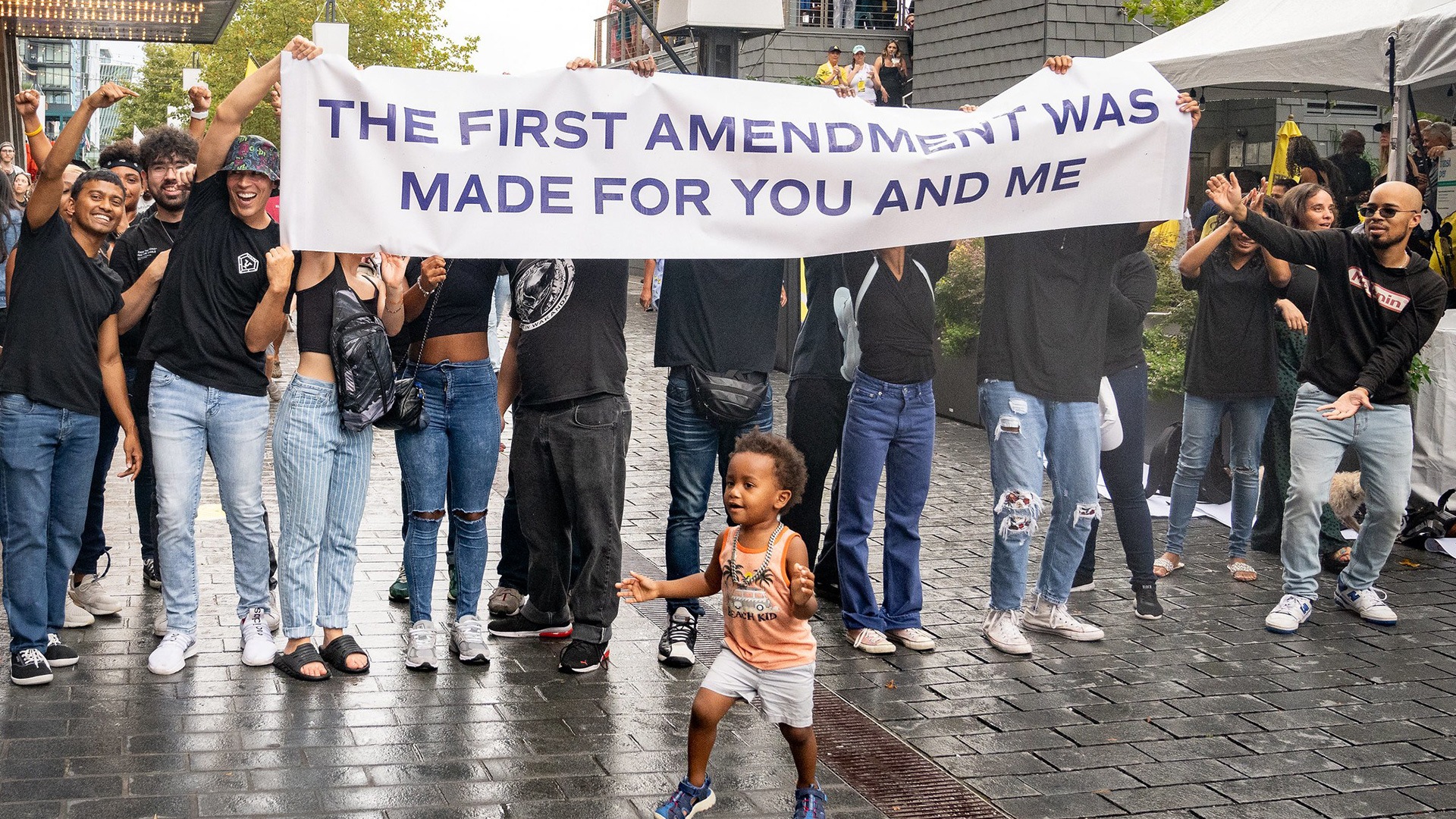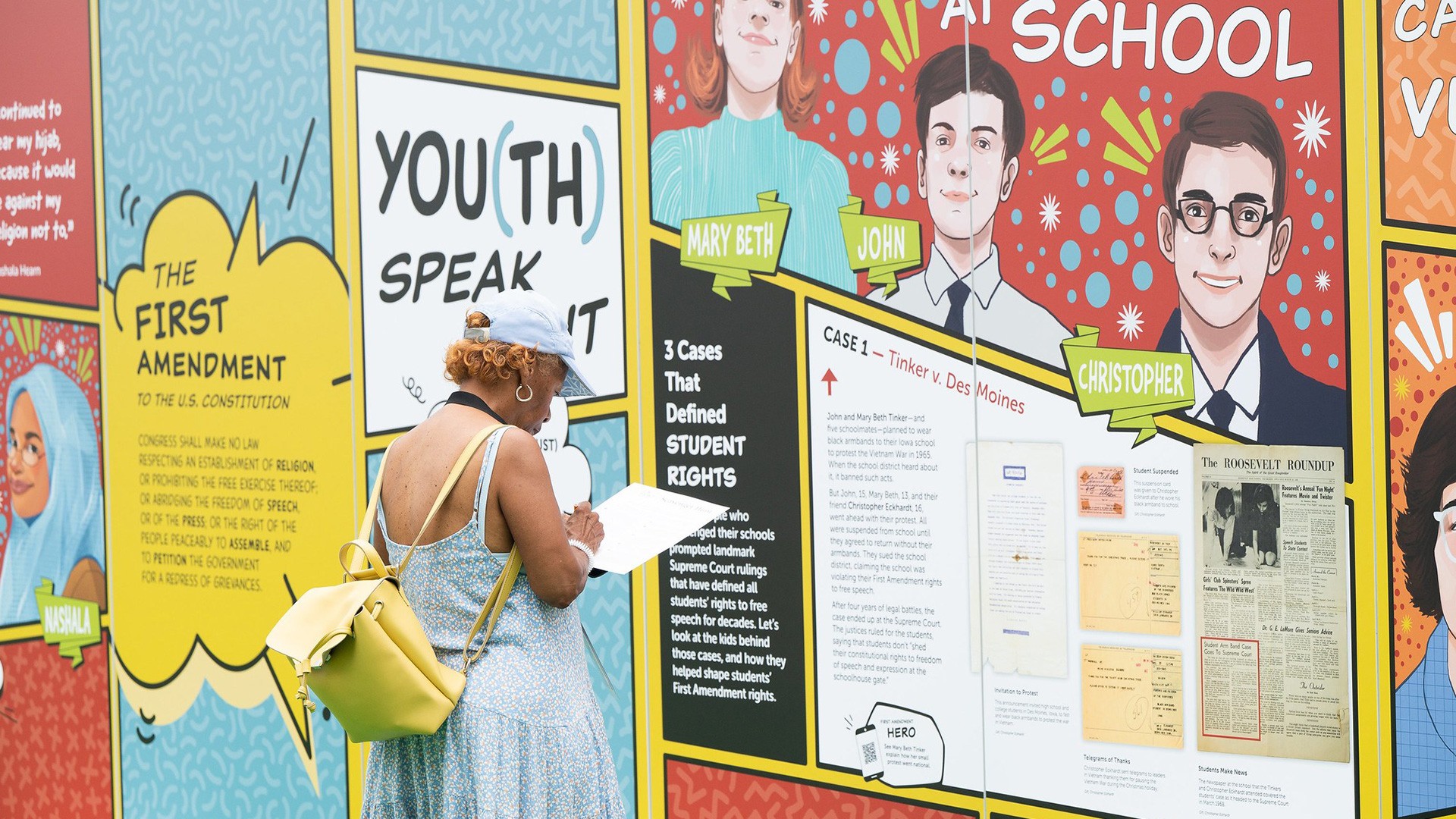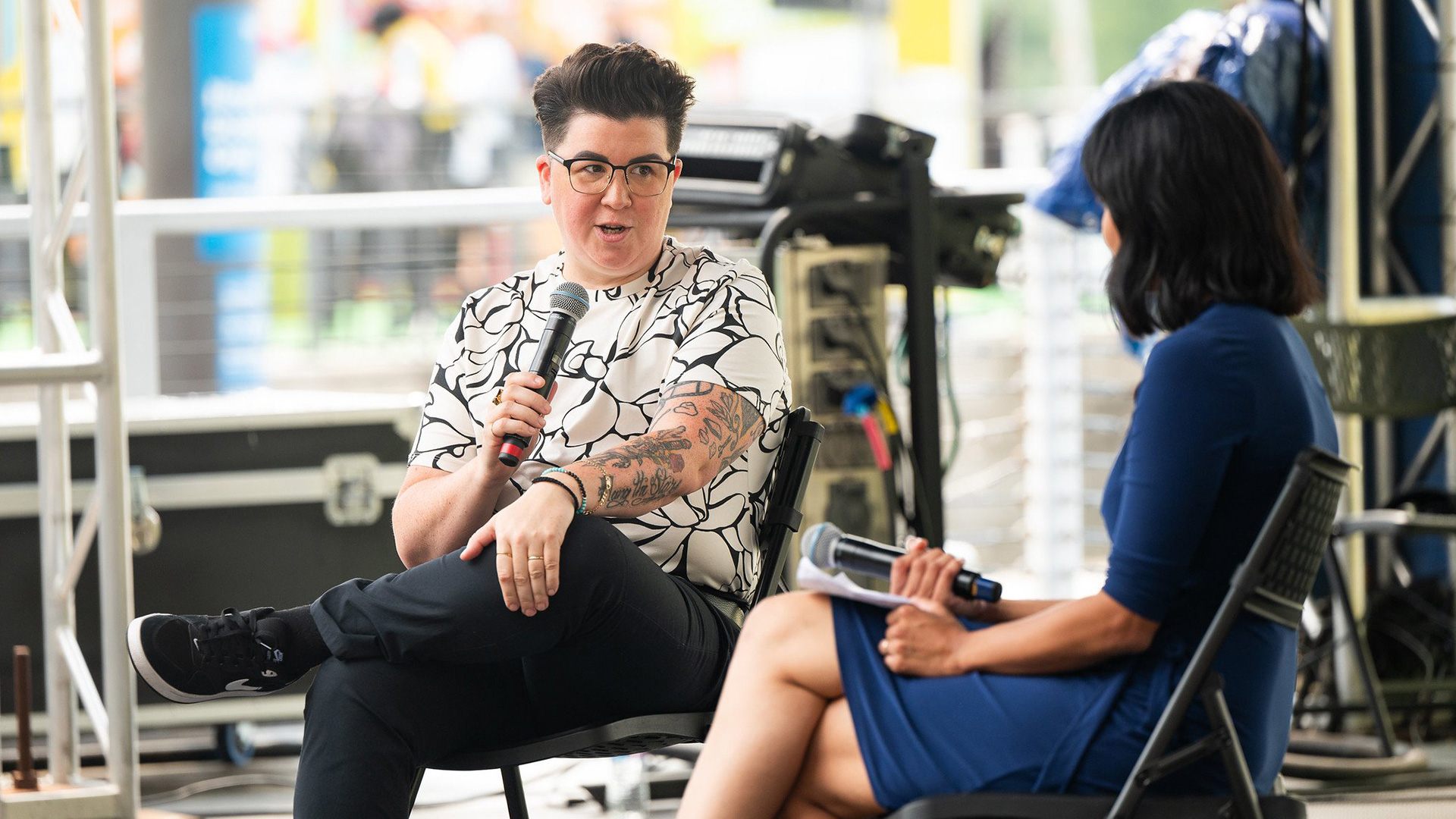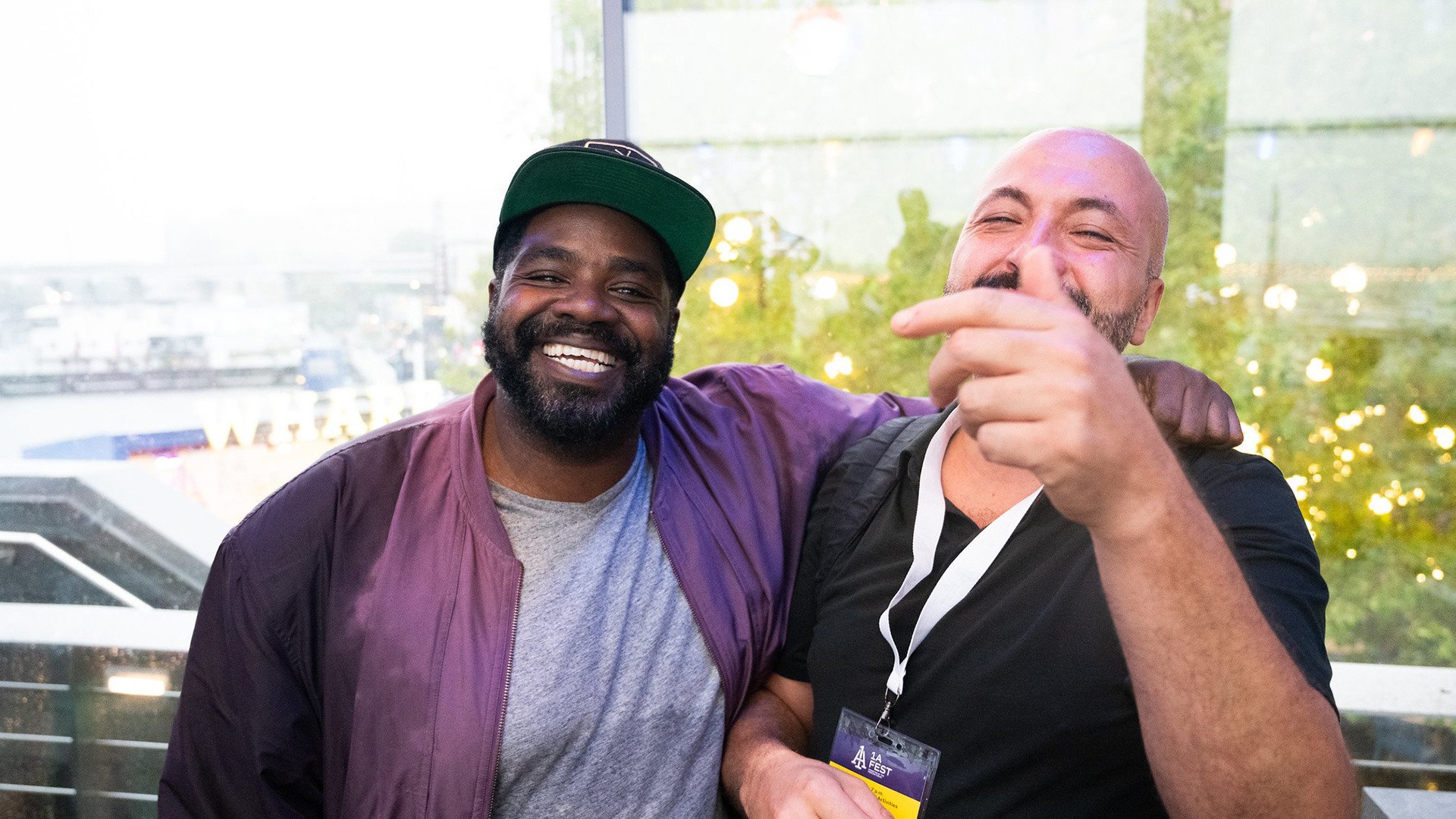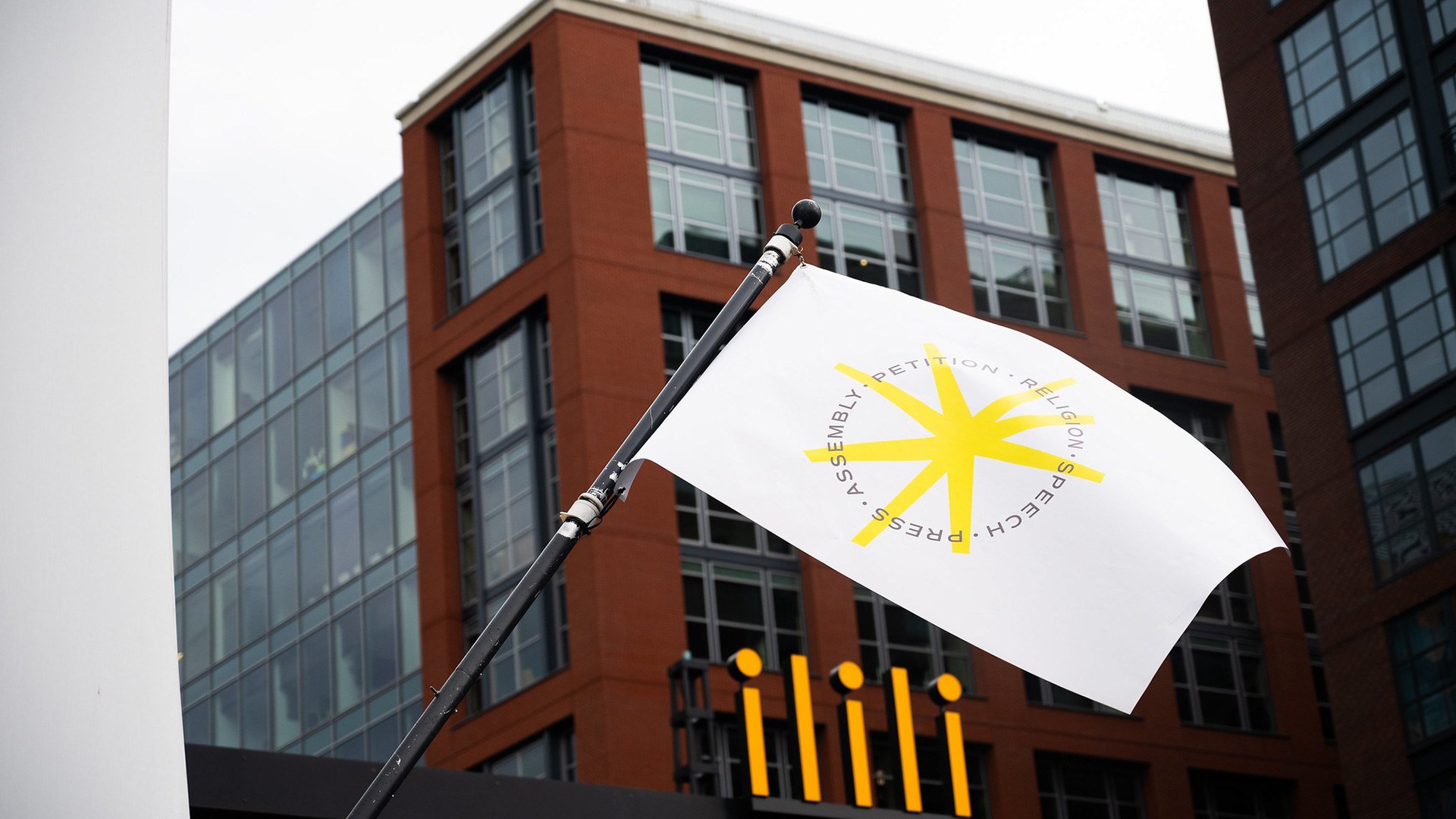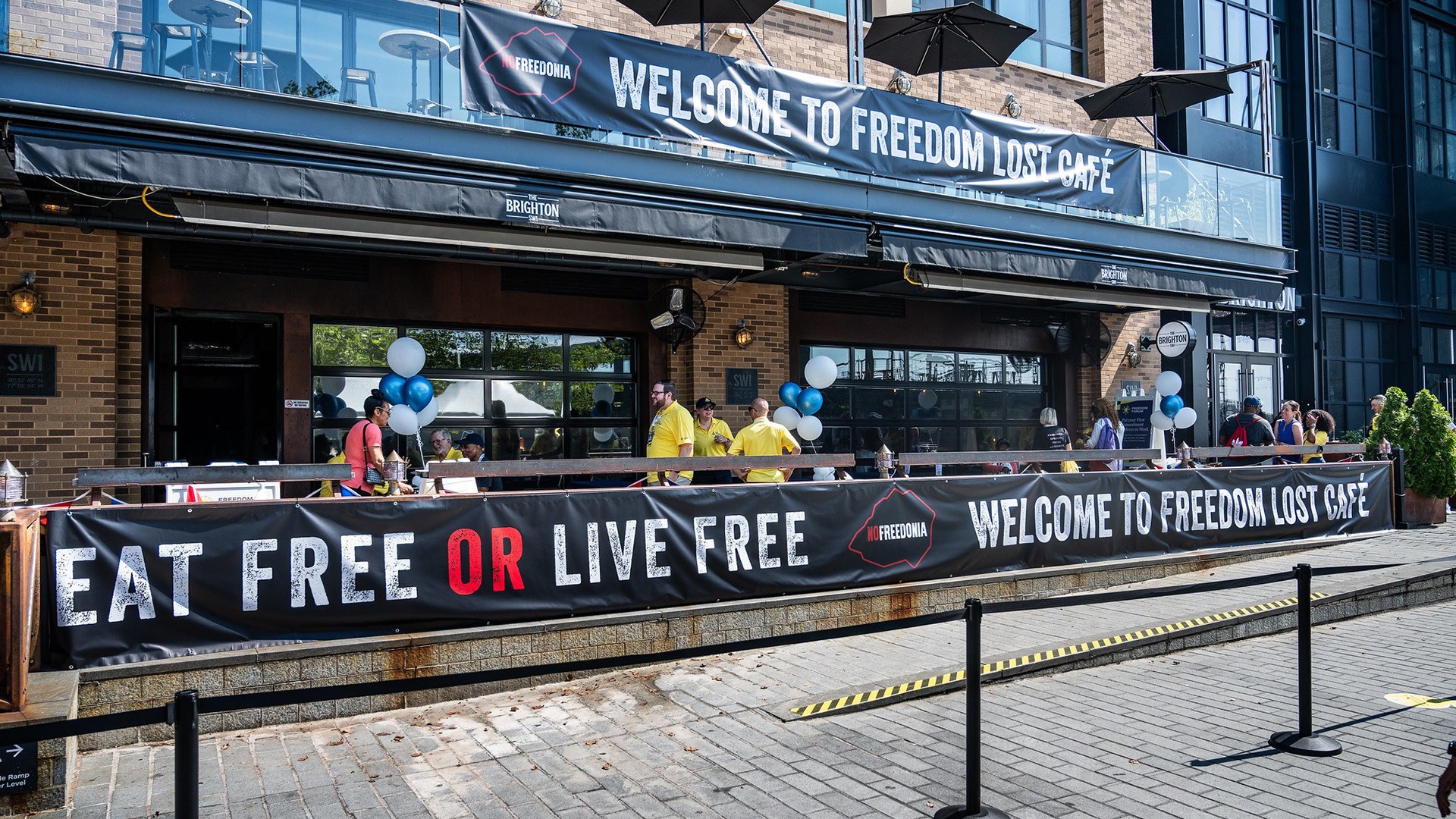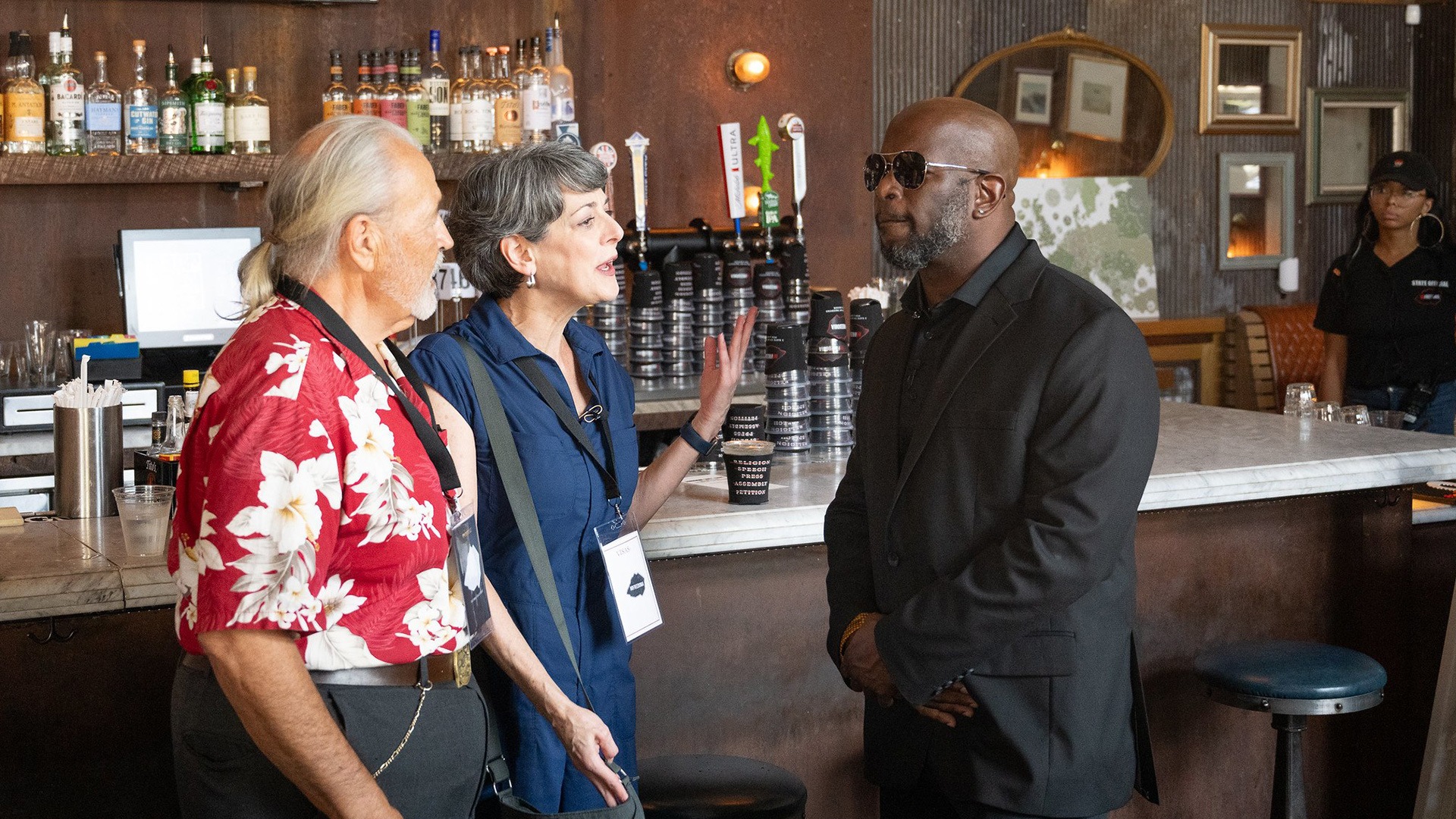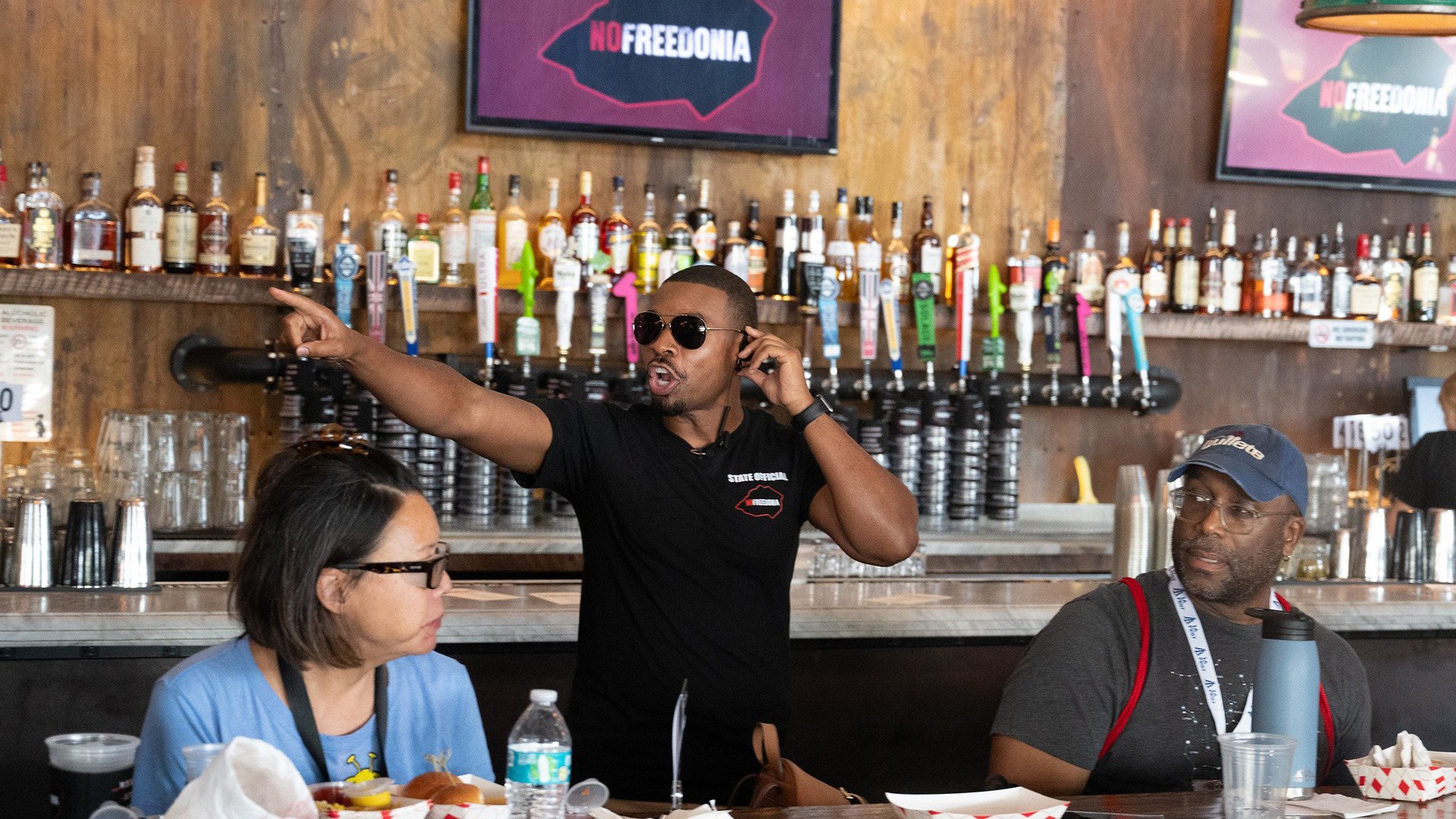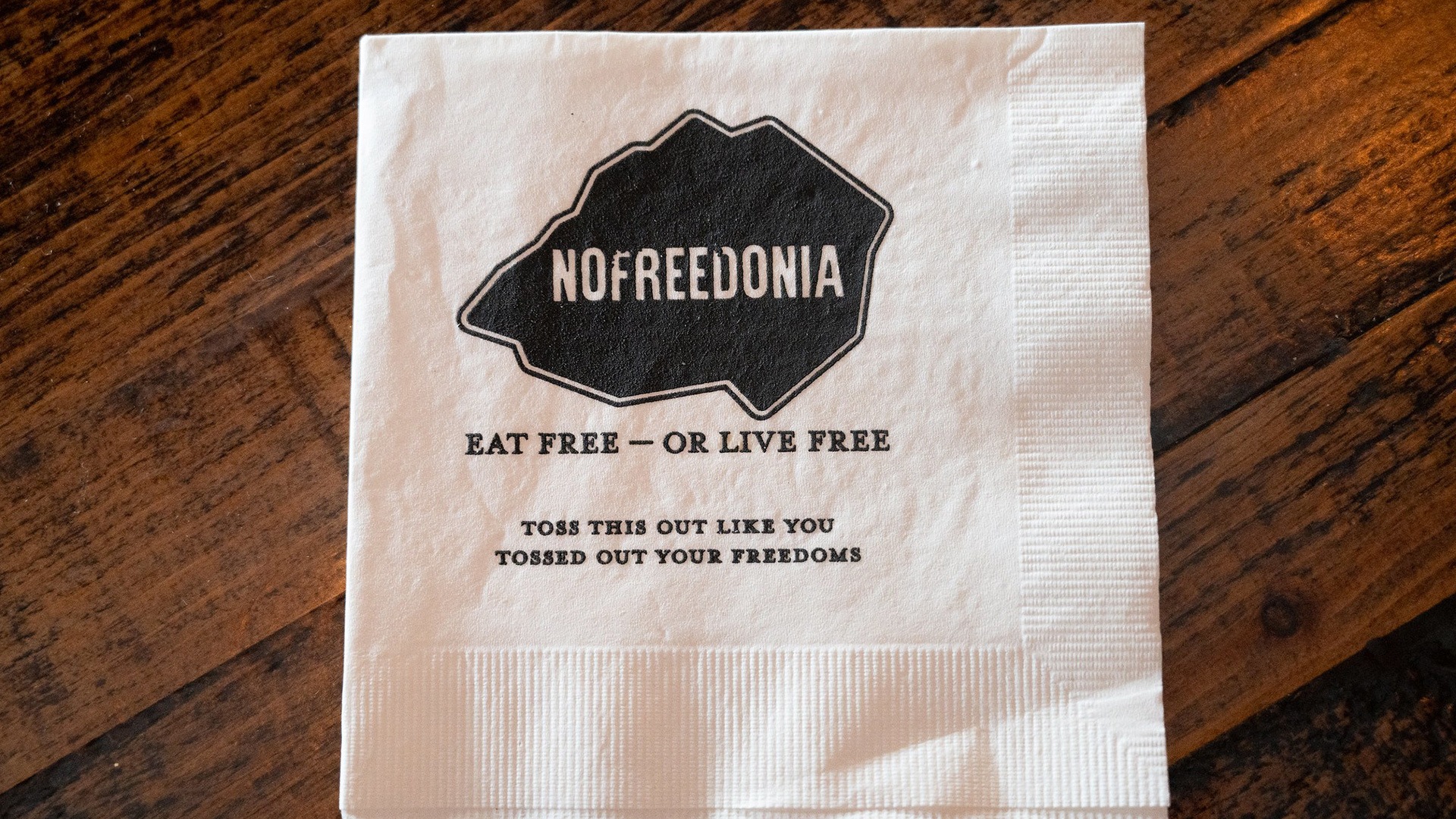Why the First Amendment Is F.I.R.S.T.
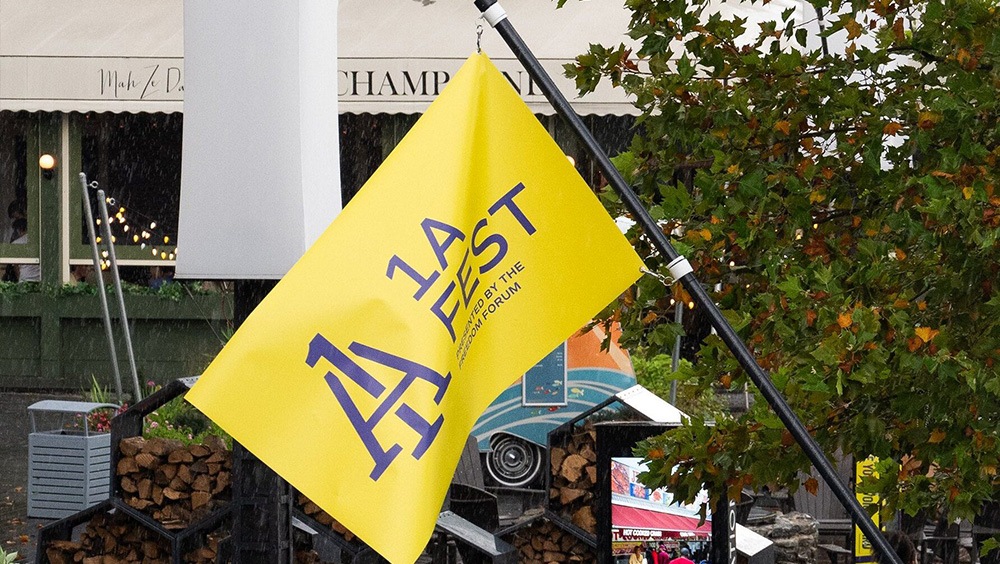
Quick quiz: What do you get when you mix comedy, music, education, balloon art, yard games, scavenger hunts and fictional dictatorships?
Answer: A day celebrating the First Amendment!
That was the goal of Freedom Forum's 1A Fest, the 2023 First Amendment festival held on The Wharf in Washington, D.C., on Saturday, Sept. 9.
Freedom Forum's mission is to foster First Amendment freedoms for all. On paper, it's a catchy (and alliterative) sentiment. In practice, it's about educating, engaging and inspiring people online, around the country, and mere blocks away from where Supreme Court justices consider abstract-sounding legal questions that affect the rights of very real people.
Another quiz: What are the five freedoms protected by the First Amendment?
Answer: Religion, speech, press, assembly and petition.
If you didn't know all five, that's OK! Most people in the United States don't either, according to Freedom Forum's annual survey. That's why we do this work – to educate people about their First Amendment freedoms and how to use them in everyday life.
The 2023 1A Fest showed why we think the First Amendment is F.I.R.S.T.: It's fun, inspiring, relatable, stormy and thought-provoking!
The First Amendment is fun
As a family-friendly event, face painting, a caricature artist and various yard games all reinforced the fact that the First Amendment encompasses many kinds of free expression. Painting your face, making art, and getting your groove on while dancing at a concert or in a coordinated flash mob are all protected free speech.
Wait, flash mob? Yes, complete with protest signs, a dance remix to Woody Guthrie's "This Land is Your Land," and ending with dancers unfurling a banner reading "The First Amendment was made for you and me." How appropriate!
The First Amendment is inspiring
First Amendment freedoms for all really means all people, kids included. It's incorrect that because someone is under 18, or at school, they don't have any First Amendment rights. It's important for young people to know and understand this.
There are numerous examples of school-aged young people taking their First Amendment cases all the way to the U.S. Supreme Court.
Some of these are highlighted in Freedom Forum's "First Amendment and You(th)" exhibit, which was on display at 1A Fest and is also on display at Reagan National and Dulles International airports.
Voting rights may start at age 18, but the freedoms of religion, speech, press, assembly and petition don't stop "at the schoolhouse gate," to invoke a notable line from a 1969 Supreme Court decision upholding the right of students to protest at school.
When young people know about this history, it's more likely they will use their First Amendment freedoms, challenge limits to their rights and be inspired to be engaged members in a participatory democracy.
The First Amendment is relatable
If there are three things people have abundant access to and demand for in the United States, it's scrolling social media, enjoying comedy, and looking for food – all of which were well represented at 1A Fest.
Stage programming included talks about satire and the First Amendment with writers for The Onion and making news relatable and approachable with chef-turned-TikTok creator Vitus "V" Spehar.
V explained that their approach to delivering news via their popular TikTok channel "Under the Desk News" is based on making information, and those delivering it, feel approachable and relatable.
"I have been told that I have oldest daughter, a big sister, favorite cousin energy … I try to keep that energy for folks because people got so afraid of the news," V told moderator and Freedom Forum Fellow Lata Nott. "And folks really started to trust the news again, they would see me come up and they'd be like, 'OK, I'm going to listen because I'm not going to be upset when this is over, even if it's an upsetting story.'"
Comedian and actor Ron Funches didn’t get to perform his set due to inclement weather. But he did talk to the Freedom Forum about how his evolving career shaped his views on the First Amendment.
"The First Amendment to me is kind of like oxygen or your blood, where you don't really think about it that much until it's not working properly, or when you feel like you need it suddenly and it becomes desperate for you," Funches said. "So, I'd say when I was younger, it's not something I thought about much. There were certain things in the background. I grew up listening to people like Public Enemy, and they were always talking about utilizing your First Amendment. And I think as I've gotten older and more active in my life and just my community around me, you become more aware about how important the First Amendment is."
The First Amendment is stormy
"I disapprove of what you say, but I will defend to the death your right to say it."
This summary of French free speech advocate Voltaire's philosophy from Evelyn Beatrice Hall's biography of him comes up often in First Amendment conversations. Perhaps because it's a provocative line. Perhaps because it's wistful and aspirational.
If only the First Amendment were so understood, agreed on and defended today. In reality, conversations about free speech can quickly get emotional. What is protected speech to one person can be harmful and hurtful hate speech to another. (Yes, for the most part, hate speech is protected by the First Amendment.)
Flag burning or desecration is another fraught example as it touches on themes of military service, patriotism and even the First Amendment right not to stand during the national anthem.
As lightning and torrential rain forced the outdoor event to delay and move to a protected area, attendees heard from one person with direct experience in these stormy conversations.
Nate Boyer, a former U.S. Army Green Beret and former college football and NFL player, explained how he felt about Colin Kaepernick's well-documented protest to sit and later kneel during the national anthem in 2016 and beyond.
Boyer described the letter he wrote in the publication Army Times, specifically addressing Kaepernick's decision to sit during the national anthem as a protest against police treatment of Black people.
"I wrote this letter. I said, 'This is my experience. This is why I feel this way,'" Boyer said. "'This is why those symbols are important, but I respect what you're doing.'"
Later, talking with Kaepernick in person, Boyer suggested Kaepernick join his teammates on the sideline and take a knee instead of sitting on the bench.
"I said … 'I don't think kneeling is ever really seen as disrespectful.' And he agreed. He thought that was actually better. Kind of, in that moment, he just said, 'Alright, I'll do that. I'll take a knee.'"
Seven years after suggesting that Colin Kaepernick kneel, rather than sit, during the national anthem, @NateBoyer37 says he "would not have done anything different," and that's due in large part to one thing: The First Amendment.
— Freedom Forum (@1stForAll) September 22, 2023
➡️ https://t.co/z4U4bQ4rSQ pic.twitter.com/y9T9bIz7QS
Taking a knee didn't stop the blowback for Kaepernick. If anything, it made the protest more visible, obvious and easy to emulate for other athletes, like members of the U.S. Women's National Soccer Team. It also inflamed years of culture war back-and-forth among politicians and garnered heavy media coverage and criticism. It also effectively ended Kaepernick's NFL career; though the First Amendment prohibits government from punishing expressions like Kaepernick's, private employers like the NFL and its teams are not bound by the First Amendment.
Though that is the First Amendment in action: the right to stand, kneel, sit or otherwise not be compelled to make any gesture toward the flag is a form of protected speech. And the right to criticize or condemn people who don't do as you do, though stormy and provocative, is using your own free speech right.
"At the end of the day, when I took the oath to join the military, I took the oath to defend the Constitution, which includes … the First Amendment," Boyer recounted when describing how he thought about that initial letter to Kaepernick. "'You are exercising that right. And I respect that, and I look forward to the day that you are inspired to stand once again. I'll be standing right there next to you.'"
The First Amendment is thought-provoking
Many people value the First Amendment but don't necessarily know all five freedoms and how they apply to their daily lives.
One way to highlight – and teach – that is to show what it's like when those freedoms disappear. As Joni Mitchell sang, "Don't it always seem to go, that you don't know what you've got 'til it's gone."
That was the idea behind Freedom Lost Café during 1A Fest. Participants "left" the United States and entered the fictional country of NoFreedonia, located in The Brighton restaurant. In exchange for free food and drinks, visitors to NoFreedonia gave up their First Amendment rights of religion, speech, press, assembly and petition.
What could go wrong?
Turns out, a lot. Inside NoFreedonia, people did indeed get free food – at the high price of their freedoms. They were met with the ominous instructions of a fictional dictator, who appeared on TV screens and warned customers not to break the rules: No praying. No speaking out of order. No talking with pesky reporters. No gathering together. No protesting.
The sunglass-wearing state security enforced the rules and hauled any offenders to jail.
Throughout the experience – set up with scripted scenarios from actors speaking out against the dictator, praying together, protesting injustice, and a journalist breaking through NoFreedonia immigration to report a story – attendees got a taste of what it's like to live in a country without a First Amendment.
A journalist from HillRag detailed the experience of one attendee at the Freedom Lost Café:
"Ralph Albrecht was reminded of his father's experience as a young boy in Nazi Germany.
'Obviously, he was a kid, so couldn't do anything about it. But his father lost his businesses and everything,' Albrecht said, referencing his grandfather.
'And really the whole world can be turned upside down [without the First Amendment],' Albrecht added."
Freedom Lost Café was adapted from a program by the Society of Professional Journalists, which produced similar events on college campuses.
After leaving NoFreedonia and "returning" to the United States, attendees could talk with Freedom Forum staff and experts about the very freedoms they have – and want to better understand – under the First Amendment.
The First Amendment doesn't appear first in the Bill of Rights because it was necessarily top-of-mind. It's more a quirk of history why it's, well, first. Regardless, it's first now, which means it's not only Freedom Forum's focus, but also a Fun, Inspiring, Relatable, Stormy, and Thought-provoking way to learn about your freedoms of religion, speech, press, assembly and petition.
Scott A. Leadingham is a Freedom Forum staff writer, journalist and journalism trainer. Follow him on Twitter/X @scottleadingham
Support for the 1A Fest was provided by:
Curtis T. Bell Trust, Charles and Andrea Overby, Uber, and Williams & Connolly LLP
The Right to Be Forgotten: Everything to Know About Erasing Digital Footprints
10+ of the Most Prominent Sports Protests of All Time
Related Content
